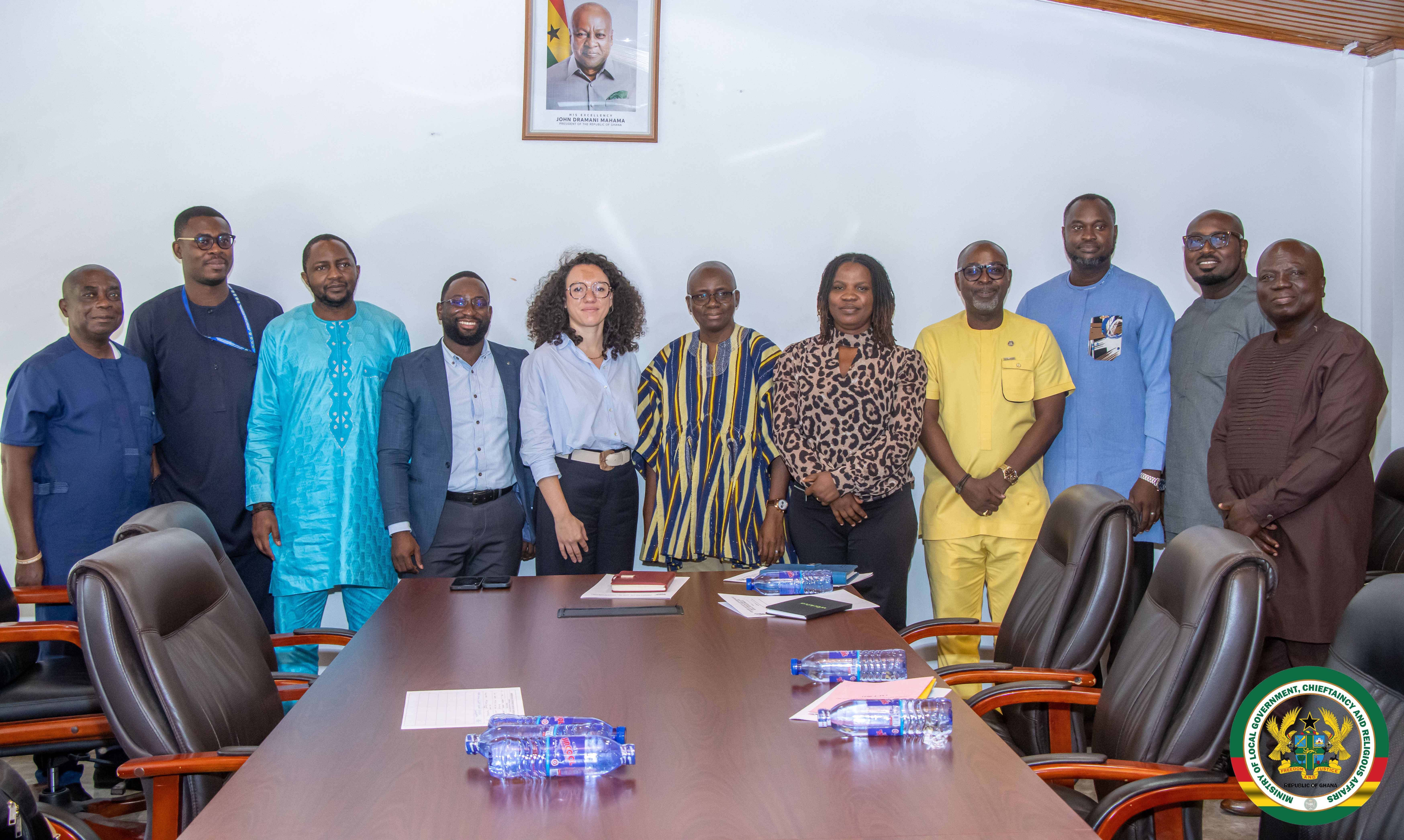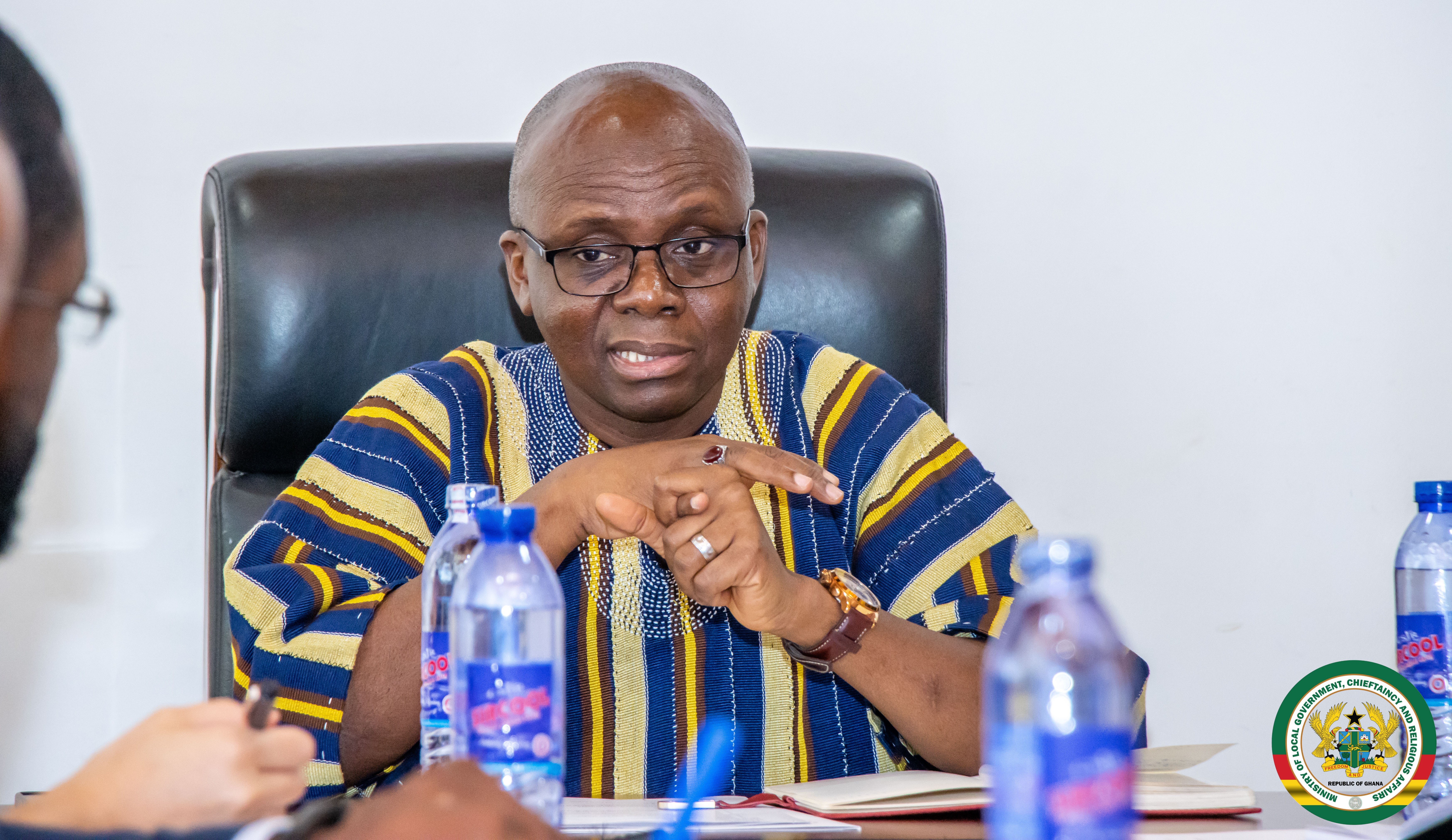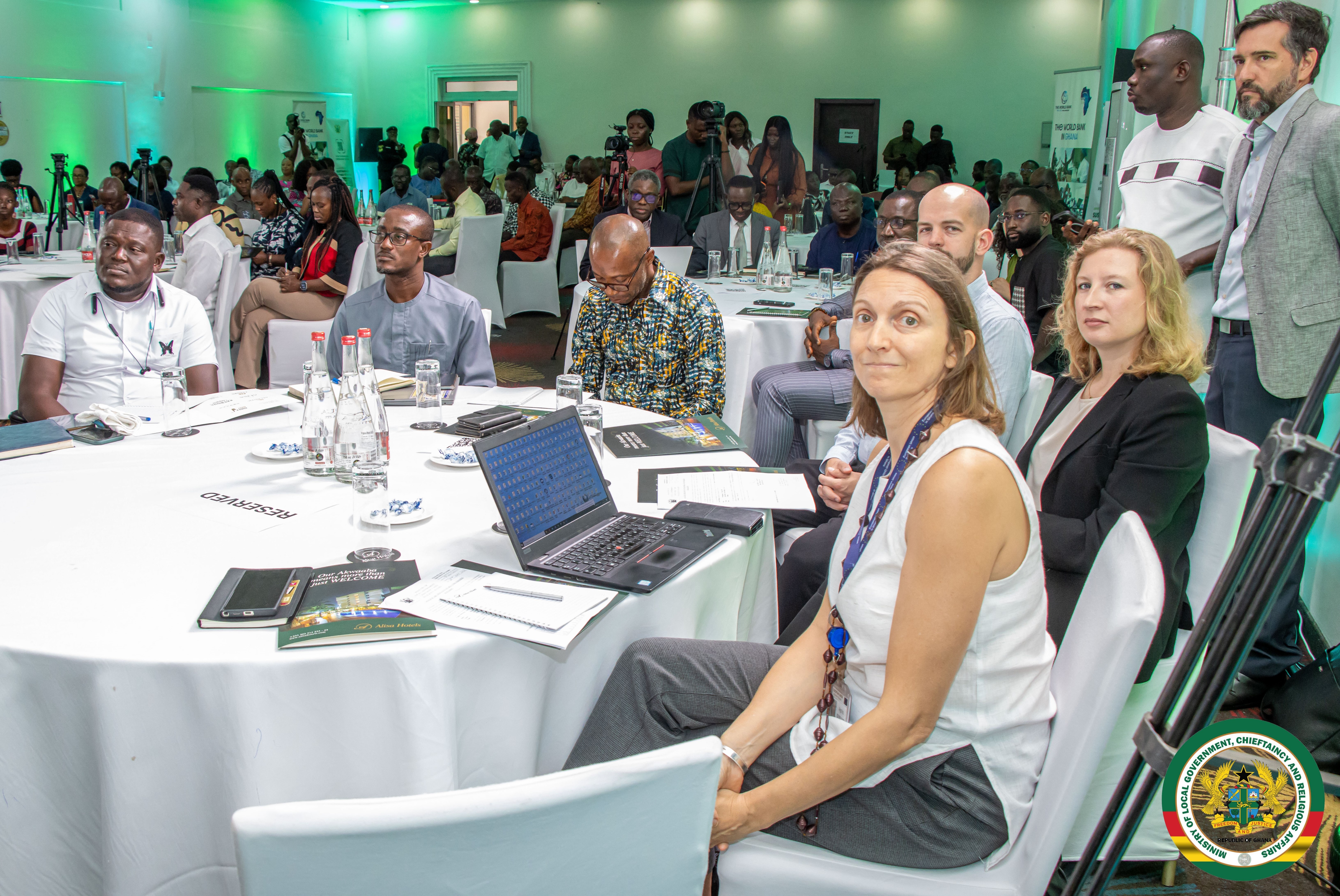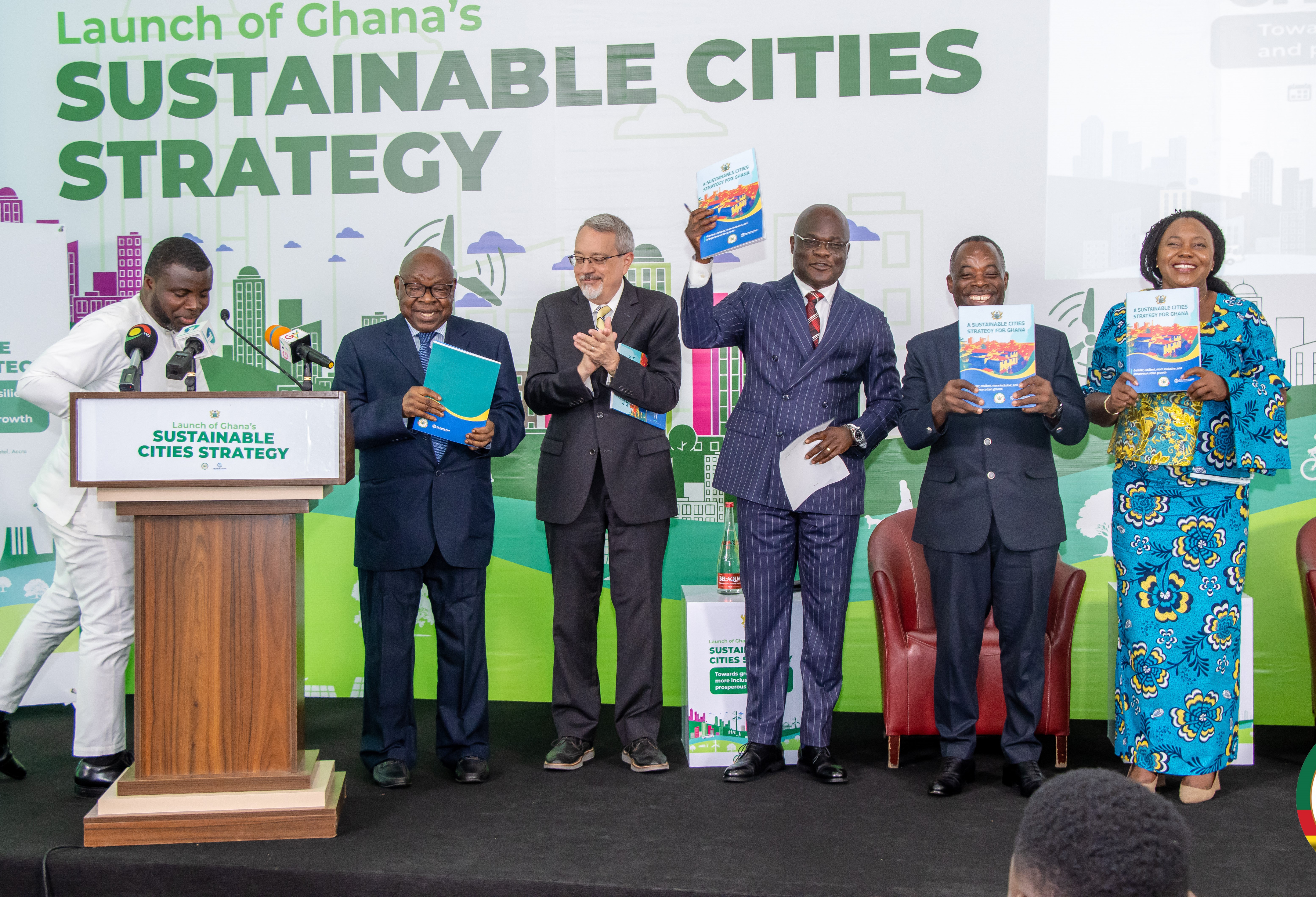Ghana has taken a decisive leap toward reshaping the future of its urban spaces with the official launch of the Ghana Sustainable Cities Strategy (GSCS), a comprehensive national framework aimed at promoting inclusive, green, resilient, and prosperous urban growth.
The Strategy, launched by the Ministry of Local Government, Chieftaincy and Religious Affairs (MLGCRA) in collaboration with the World Bank, was unveiled at a high-level ceremony at the Alisa Hotel in Accra. The event brought together government officials, Members of Parliament, Metropolitan and Municipal Chief Executives, traditional and religious leaders, development partners, civil society, academia, and the media.
Delivering the keynote address, the Minister for Local Government, Chieftaincy and Religious Affairs, Hon. Ahmed Ibrahim (MP), described the Strategy as both “a national commitment and a call to action,” and emphasized that the document goes beyond policy to represent “a blueprint for building cities that work for everyone, cities that reflect our resilience, our aspirations, and our shared Ghanaian values.”
With Ghana’s urban population now exceeding 56.7% and projected to surpass 60% by 2030, the GSCS responds to the dual reality of opportunity and challenge. While urbanization continues to drive economic growth and innovation, it also presents pressing problems: inadequate infrastructure, worsening inequality, environmental degradation, and service delivery gaps.
The GSCS sets out four strategic actions to steer the country's urban transformation: targeting rapidly growing cities such as Tamale, Wa, Ho, Sunyani, Techiman, Bolgatanga, and Denu to curb unsustainable growth; prioritizing investment in solid waste management, urban mobility, land administration, and affordable housing; mobilizing local and private capital to bridge infrastructure financing gaps, estimated at $37 billion annually by the Ghana Infrastructure Plan; and enhancing coordination among stakeholders, including local governments, traditional authorities, and development partners, to ensure coherent and impactful urban investments.
The Minister highlighted the significance of a whole-of-society approach: “Sustainable urban development cannot be achieved by government alone. It requires multi-level collaboration across public, private, and community spheres.” He also underscored the importance of culturally grounded and people-centred smart cities, noting that urban development must consider heritage, human values, and the voices of marginalized populations.
In a show of strong international support, World Bank Division Director Robert Taliercio praised the Strategy as a milestone outcome of years of collaboration, noting that Ghana’s cities are poised to become “engines of green growth and inclusive opportunity.” He stressed the need to scale up property taxation, attract private capital through PPPs, and strengthen urban governance as levers for sustainable development.
The GSCS is deeply rooted in robust national data and diagnostics, drawing on the 2021 Population and Housing Census, Ghana Living Standards Survey, and other local studies. It is also aligned with Ghana’s Revised National Urban Policy (NUP), the Africa Union’s Agenda 2063, and the UN Sustainable Development Goals; particularly SDG 11, which calls for inclusive, safe, resilient, and sustainable cities.
The Minister concluded by calling on all Ghanaians, especially the youth, to actively participate in shaping the cities of tomorrow. “Let us choose sustainability. Let us choose equity. Let us choose to build cities that we can all be proud of,” he declared.
Source: Darling Maame Efua Cann
(Public Relations Unit MLGCRA)









